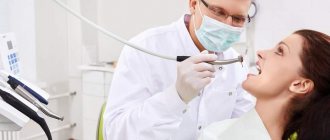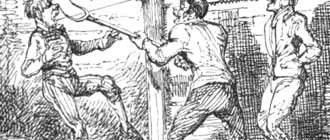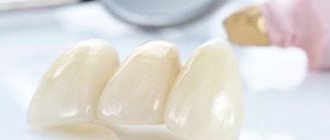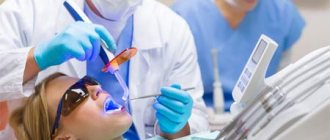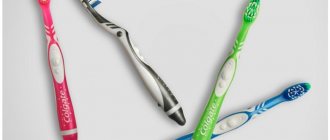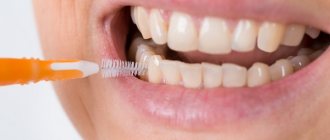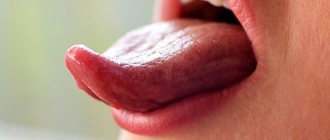Who among us hasn’t had a toothache at least once in our lives? Probably those who do not have teeth and never had them. But there are no miracles in life, and therefore everyone is familiar with the concept of “toothache,” acute and painful. Regular visits to the dentist can prevent its occurrence. Only few people do this, since they are afraid of the dentist even more than the appearance of the notorious pain, and turn to him mainly in case of emergency.
Who among us hasn’t had a toothache at least once in our lives? Probably those who do not have teeth and never had them. But there are no miracles in life, and therefore everyone is familiar with the concept of “toothache,” acute and painful. Regular visits to the dentist can prevent its occurrence. Only few people do this, since they fear the dentist (and to be more precise, his drill and other, no less terrible, instruments) even more than the appearance of the notorious pain, and turn to him mainly in case of emergency.
Much to our regret, such a need arises more often than we would like. Therefore, the queue at dental clinics never ends, and dentists are one of the highest paid professions in the medical industry. For the most part, this fact is the reason why the dental profession is extremely popular among applicants who choose “lucrative” specialties. However, they forget that the dentist’s profession is not only guaranteed material well-being, but hard work, which can only be performed efficiently if you have certain abilities. And today we will tell you what personal qualities a dentist should have.
History of the profession
The very first mentions of dental therapy are found in the history of Ancient Egypt. Tools similar to modern analogues have been found more than once in tombs. Many more Egyptian skulls with crowns on their teeth were also discovered there, and these were not only rich people. Judging therefore, it can be said that some types of dentistry were developed in Egypt. In addition, the first toothpaste was mentioned at the same time . It included:
- ashes of the burnt entrails of a bull;
- ground eggshell;
- myrrh;
- crushed pumice.
Then in the IV-V centuries. BC, the great Hippocrates became interested in this science. He recommended eliminating pain with a hot iron. At that time, many people suffered from toothache and did not understand how to deal with it. Fatalities from common flux were common, and during the time of Hippocrates, dentistry advanced several steps forward.
In your free time from work, you can earn extra money
on freelance exchanges (by writing comments, reviews, or simple actions on social networks) - choose what you like best and start earning money!
The first toothbrushes appeared in the Middle East in 500 AD. And in the 4th century AD. e. found forceps used to pull out bad teeth. And also powerful drugs that relieve pain appeared: arsenic and opium. Therefore, people began to understand that there is no need to rush to remove teeth, but that they can be treated. So, in 659 the first fillings appeared.
This specialization developed, and already in Russia, during the reign of Peter I, the profession of dentist officially arose, and rapidly became popular among men and women. In 1881, the first educational institution appeared in St. Petersburg, which trained future dentists. Then such institutions began to open throughout Russia.
February 9 is considered to be International Dentist Day, which falls on the day of St. Apollonia. After all, it was she who accepted martyrdom for Christ. She was tortured with forceps, which caused hellish pain.
Types of specialization
This type of activity is multidisciplinary and covers a wide range of activities. Therefore, modern science has divided this branch of knowledge into a number of specialized specialties:
- Dentist-therapist . You can find out what this doctor does if a person has dental problems and pain. His responsibilities include a preliminary examination of the patient’s teeth and prescribing subsequent treatment. He also treats caries and inflammation in the oral cavity. After examination and diagnosis, the doctor refers you to specialized specialists.
- Prosthetist . If the therapist did not cope with the task, then people come to this doctor. He deals with prosthetics and offers different options to patients. Then he makes a description, impressions of the teeth and adjusts them to the particular structure of the patient’s mouth.
- Dental hygienist . Examines the oral cavity, removes plaque, polishes enamel and advises people on the prevention of dental diseases.
- Orthopedist . It is based on the removal of distortions in the bite and the installation of different types of orthopedic dentures - removable, fixed and combined, and also corrects the position of the teeth in the oral cavity.
- Surgeon . You cannot do without it, because there are cases when surgical intervention is necessary. The surgeon prepares the oral cavity for the upcoming procedure of inserting dentures. His competence includes jaw practice, treatment of wounds on the face and mouth, and jaw restoration.
- Maxillofacial surgeon . The specialty of these doctors was complex operations of various types using general anesthesia and correction of the jaw area.
- Pediatric dentist . In young children, baby teeth have certain characteristics, and working with them requires skills. In addition, the pediatrician must get along with children so that they are not afraid before the procedure.
- Orthodontist . Unlike an orthopedist, he deals primarily with exceptional cases, anomalies, and deviations in the development of the jaw.
- Periodontist . Specializes in the gums and soft tissues that support and surround teeth. Consults patients about bleeding gums, the appearance of tartar and plaque on teeth.
All these names, or rather, specialties, can be mastered at the Faculty of Dentistry of a medical university. The first 2-3 years are spent on general training, and then there will be training in a specific profession. It is for this that you need to pass the exam for the category.
Job Responsibilities
Even at the institute, immediately after admission, the student is prepared for future work and clearly delineates what will become his vocation.
Job responsibilities of a dentist include:
- carrying out diagnostics and providing all types of dental services to the patient;
- treatment of teeth, oral cavity and maxillofacial area;
- preparation of dental and orthopedic instruments and their correct use for their intended purpose, adhering to safety precautions;
- collection of biomaterial for analysis;
- carrying out prevention, diagnosis and treatment of all types of caries;
- correct removal, prosthetics and installation of fillings;
- registration of medical documentation established by law;
- compliance with job instructions.
These are mandatory items that require strict implementation.
Criteria for choosing a dentist
There are a number of specific parameters that will help you choose a specialist in this field:
- Service list. The wider the list of services provided by a doctor, the higher the level of his qualifications. By the way, this criterion also indicates that dentistry has more technological capabilities.
- Equipment used. Modern dental equipment, imported equipment and materials - all this clearly demonstrates the responsible approach of the clinic’s managers to their work, concern for the comfort and safety of patients, as well as the high level of services provided.
- Order in the workplace. Cleanliness, working in disposable masks and gloves, sterile instruments, order on the work surface, a bright and ventilated room - this is exactly what a decent dentist’s office should look like.
- Patient reviews. There are a large number of Internet pages where you can read reviews about the specialist you are interested in. But we recommend relying on live reviews that you can learn from your loved ones and acquaintances.
- Availability of an assistant. A qualified dentist who values your and his time always has an assistant in his arsenal who will carry out his small assignments during the treatment process.
- Regalia. Don’t be afraid to ask the dentist about his level of education and qualifications, and also ask to show you documents about his achievements in the field of dentistry. Any dentist who respects himself and his work will no doubt show you his diplomas, certificates and awards, which will allow you to understand that you have made the right choice.
- Use of anesthesia. A qualified dentist will offer to make the treatment process painless and you won’t have to “be patient a little.” A modern doctor will offer you an anesthetic gel if the treatment is short-term and minor. Anesthetic injections are used for more complex procedures.
- Carrying out diagnostics. A competent doctor will not undertake dental treatment unless he conducts a comprehensive diagnosis.
- Explanation of the specifics of the upcoming work. The specialist will competently and clearly tell you what he has to do to achieve the result, explain why he chose this or that treatment method, discuss the cost and answer all your questions.
- License. The dentist must be licensed specifically for the services he provides in the clinic.
An undoubted advantage for a good dentist is regular improvement of his qualifications. This also includes membership in professional dental associations. But long experience and the number of patients are far from indicators that a specialist works efficiently.
Requirements for a dentist
In addition to the clearly limited responsibilities that define the work of a doctor, there are also qualification indicators that are used to guide the employment of specialists.
People who:
- have a diploma with higher medical education, a certificate of a certain specialization;
- passed a medical examination and received a medical certificate;
- have experience in this field;
- have computer skills;
- presence of responsibility, sociability, attentiveness and accuracy.
Personal qualities and skills are no less important for this profession. These include:
- the presence of excellent coordination of movements, hand motor skills, excellent vision;
- knowledge of human anatomy and physiology;
- understanding the effects of medications used in dentistry;
- ability to use specialized instruments, as well as an X-ray machine and interpret images.
It is inherent in a dentist to be a bit of a psychologist, to be able to communicate with nervous patients, to correctly explain the situation in order to relieve nervousness and calm the patient.
Field of professional activity of a dental surgeon
The competence of a dental surgeon includes the following responsibilities:
- examination, diagnosis of oral diseases;
- planning of invasive intervention;
- carrying out planned surgical operations (cystectomy, flap plastic surgery, gingivectomy, gingivotomy, hemisection, others);
- provision of emergency surgical dental care;
- treatment of fractures, jaw dislocations;
- removal of teeth, fragments, destroyed roots (if it is impossible to carry out tooth-preserving manipulations);
- introduction of conduction and infiltration anesthesia;
- invasive treatment of congenital and acquired pathologies of teeth and periodontium;
- performing operations to remove cystic formations, tumors (benign and malignant);
- providing advisory support to fellow dentists of other specialties.
In addition to dental surgery, the specialist has perfect knowledge of anatomy, physiology, and pathological physiology. He must be able to work with various dental instruments and equipment, determine pathology from X-rays, understand the indicators of laboratory tests, know the purpose, methods of taking medications, and much more.
Principles of training
If you decide to become a dentist, then you need to understand that this profession is very responsible. Therefore, it is necessary to obtain a medical education.
Those who are interested in dentistry are wondering: how long to study to become a dentist and what is needed for this. To enter a university, you must:
- complete 11 grades in a secondary school;
- pass the appropriate exams in biology, chemistry and Russian.
It is necessary to understand whether a person is ready for this profession. To obtain a specialty in this field, you need good study and a specific goal, as well as the ability to find an approach to even the most picky and harmful patients.
Where do you study to become a dentist?
Medical schools, technical schools and specialized faculties of medical universities train dental specialists. You can get a profession either free of charge or through a paid training system. Medical schools and technical schools train dental assistants and dental technicians who manufacture dental prosthetics, orthodontic and maxillofacial devices. To become a dentist, you need to obtain a higher education.
Top 10 Russian universities that train dental specialists:
- First Moscow State Medical University named after I.M. Sechenov.
- Russian National Research Medical University named after N. I. Pirogov (Moscow).
- St. Petersburg State Pediatric University.
- Moscow State Medical and Dental University named after. A. I. Evdokimova.
- North-Eastern Federal University named after M.K. Ammosova (Yakutsk).
- Peoples' Friendship University of Russia (RUDN) (Moscow).
- First St. Petersburg State Medical University named after academician I.P. Pavlova.
- Northwestern State Medical University named after I.I. Mechnikov (St. Petersburg).
- Ural State Medical University (Ekaterinburg).
- Novosibirsk State Medical University.
Salary and place of work
As mentioned earlier, the profession is in demand and profitable. Therefore, dentists have a wide choice of places to work:
- public and private clinics;
- dental offices;
- sanatoriums and children's institutions.
Factors that affect wages are length of service, qualifications and region.
Salaries in the specialty range from 30,000 to 100,000 rubles, and in large cities you can earn much more. As practice shows, in private clinics the income is much different compared to public clinics. On average, it is 45,000 rubles.
Resume sample
To find a job faster, you need a resume that can be sent to several companies at once. You need to know how to compose it correctly.
The resume must include:
- Full Name;
- Date of Birth;
- contact details: phone, email;
- citizenship;
- experience;
- basic and additional education;
- professional skills;
- knowledge of languages;
- personal qualities.
The resume should be simple and understandable; there is no need to write or invent a lot, because then in practice all the qualities and abilities of the specialist will be assessed.
The difference between a dentist and a dentist
A dentist is a dentist who is a paramedic. This concept is more commonly used abroad; in some countries it simply has not taken root.
This profession differs in the type of education. You can study at a medical school, college and get a secondary education to become a dentist, but dentists only need a higher education. Accordingly, their specialization will be different.
Responsibilities of a dentist:
- examination of the patient, making a primary diagnosis;
- gum treatment;
- installation of seals;
- oral hygiene instructions;
- provision of pre-medical care and referral to specialists;
- assistance in choosing toothpaste and brush.
A dentist is trained to work with simpler cases than a dentist, so his income will be different.
What should you be concerned about?
Be careful if your chosen dentist:
- Offers the most expensive treatment without communicating alternative options. A good specialist, on the contrary, talks in detail about the different treatment options, costs, advantages, and disadvantages of each, leaving the choice to the patient.
- Does not draw up a detailed plan, increases the initially stated price, and prescribes additional conditions in the contract that are unfavorable to the patient.
- Includes procedures that were not provided on the check.
- Forces expensive services, such as implantation, in situations where a filling or crown is sufficient.
- Treats non-existent diseases, scares with complications.
If you doubt the treatment proposed by your doctor, visit 1-2 more specialists. Show them the test results. This will give you several independent opinions and allow you to compare different treatment plans. Choose a doctor whose opinion coincides with the majority. By the way, you have nothing to lose, since the initial consultation in many clinics is free.
Advantages and disadvantages
As in any profession, it is not the subject that matters, how much dentists earn, but the positive and negative nuances.
The positive aspects of working as a dentist include:
- qualifications are in demand in all countries of the world;
- high profit payment;
- normal working hours;
- Private practice is possible when you have a lot of experience.
There are also negative indicators that should not be forgotten. The negative aspects include:
- greater responsibility for the patient;
- high cost of training;
- possible stressful situations at work;
- competition;
- expensive equipment and tools;
- the need to constantly improve skills;
- working with different people.
Dentistry is a kind of art that has always been considered a prestigious profession. Therefore, every year students enter universities for this specialty in order to learn and then work and receive high wages.
Qualities a dentist should have
Obviously, the medical profession requires constant interaction with people. Therefore, qualities such as communication skills and philanthropy are mandatory for a dentist. This also includes patience, tact, stable character and lack of disgust. Since for most people a visit to the dentist becomes a serious stress, one of the doctor’s tasks will be to relieve the patient of fear. To do this, you will have to look for an individual approach to each person. In fact, any doctor, regardless of his specialization, must be a subtle psychologist. Otherwise, it is unlikely that you will be able to achieve the status of a highly qualified specialist.
In addition, the dentist will have to spend most of his time leaning over the chair with the patient. Therefore, perseverance and self-discipline skills will be additional bonuses. As mentioned above, to become a successful dentist, you need to constantly learn and improve your level of professionalism. Accordingly, lazy and uninitiated people will have to make a choice in favor of another specialty. It is important to note that the dentist is forced to deal with small instruments and the finest technologies. For this reason, this field of activity is closed to people with poor vision, impaired fine motor skills of the hands, disorders of the nervous system and musculoskeletal system.
In conclusion, it should be noted that such a prestigious profession as a dentist guarantees its owner a comfortable existence. But, despite such rosy prospects, this activity implies great responsibility and constant psychological stress. In addition, studying at a medical school will require the student to have perseverance, high efficiency and great strong-willed qualities. Since this is not given to everyone, it is necessary to choose a profession taking into account the characteristics of your own temperament.

